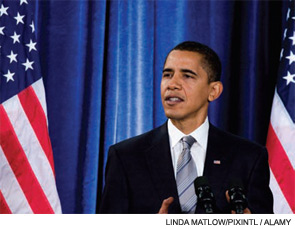Sixteen years after now Secretary of State Hillary Clinton spoke to the American Medical Association (AMA) House of Delegates on June 13, 1993, President Barack Obama delivered his message on health system reform on June 15, 2009. Clinton, who was the leader of the Presidential Task Force on Health Reform, arrived at the time her health plan was being formulated. The leadership of the AMA previously had been meeting regularly with Ira Magaziner, the point person for implementation of her plan. In this discussion, we tried to address improving access to healthcare for the uninsured and underinsured, and we thought our viewpoints were being heard. At the same time, we were stunned that the plan was not vetted more publicly with physicians and healthcare workers, and that Clinton portrayed organized medicine and physicians as responsible for the healthcare crisis. Language such as “price-gouging, cost-shifting, and conscionable profiteering” was used in her speeches.
We expressed great disappointment in Clinton’s criticisms on organized medicine. We thought we should have a seat at the table, but did not expect to be the main course. She reacted to our criticism by asking to address the AMA House of Delegates, which she did on June 13, 1993. She was greeted with respect and courtesy as she attempted to assuage the House of Delegates with remarks that recognized the contributions of physicians to the health of society and the need for us all to work together to achieve health reform.

Times have changed since 1993, and President Obama’s address to the AMA House of Delegates was preceded by a lockdown of the hotel area where he was to speak with explosive-sniffing dogs, picture IDs, metal detectors, and a large security force.
Although the president’s concepts were painted in broad strokes, his speech contained more details than he had previously discussed. President Obama also tried to reassure delegates and assuage their concerns. His speech addressed the following issues:
1. Professional liability reform: Although President Obama recognized the financial burdens imposed by the current system, his solutions were vaguely presented. Relief from liability will be offered to those who practice within guidelines, as if there was uniformity in a patient’s disease, rather than huge individual diversity. He was against a cap or ceiling on damage awards, ignoring the huge financial burden this places on the profession and the public.
2. The public option: President Obama attempted to reassure those who believe that the much-discussed “public option” is nothing more than a single-payer system. He stated that a public option is not a Trojan horse for a single-payer system. If everyone has health insurance, privately or via the public option, there will be no denials for pre-existing conditions, and hospitals will be paid for emergency care, which will no longer be a burden to the taxpayer. The delegates were skeptical that this would eventually evolve into a single-payer system with little input by physicians and concerns that there may be requirements for mandatory participation.

